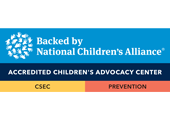A Legislative Victory Supporting Survivors
October 22, 2024
Since 1981 in the United States, October has been recognized as Domestic Violence Awareness Month. Domestic violence, otherwise known as intimate partner violence, is unfortunately very common according to the Centers for Disease Control & Prevention (CDC), with “about 41% of women and 26% of men experiencing sexual violence, physical violence, and/or stalking by an intimate partner…during their lifetime.” Unfortunately, intimate partner violence is not limited to adults. The CDC estimates 1 in 12 teenagers in the United States have experienced sexual or physical violence as a part of relationships, the majority of these victims identifying as female.
As the nuances of relationships grow in our society, abuse can be physical, sexual, psychological, with the latter occurring with increased frequency in recent years via the many varied forms of online communication. Thankfully in Massachusetts, recent legislation has been passed to protect all people of an increasingly common form of intimate partner violence by banning revenge porn and expanding protections against abuse and exploitation.
“Revenge porn” is a type of sexual abuse committed online by the sharing of nude or sexually explicit photos and/or videos of a person without their consent to shame or punish a current or former intimate partner. Other times, the threat of sharing this content is a way to control the person, often referred to as “sextortion,” which you can learn more about from a previous “Our Take” article here.
When discussing how these forms of abuse affect kids and teenagers there is an intersectionality of this type of intimate partner violence, when we are also talking about the distribution of child sexual abuse material. Since 2020, Children’s Cove has seen an increasing rate of our referrals for online sexual exploitation come in the form of peer-to-peer exploitation, often through means of sextortion or revenge porn.
This type of victimization is more than a one-time event, it is a moment in time of vulnerability or intimacy being shared without consent in perpetuity. The act is relieved and reshared for days, months, years and decades by those who consume the content of exploitation; thus, the survivor continues to be revictimized. In many instances, this form of abuse is characterized by the images/video being targeted and shared directly with those who have meaningful roles in the child’s life, such as parents, teachers, coaches, members of their faith community or employers. It can be devastating to a person’s reputation, self-esteem, peer relationships, and wellbeing. Furthermore, the advancement of Artificial Intelligence (AI) technologies and the production of “deepfakes” (realistic-looking image /video that has been manipulated to make it appear real) have only added to the complexities of this issue.
Fortunately, in June of this year, Governor Healey signed into law An Act to Prevent Abuse and Exploitation, which seeks to prevent abuse, increase protections for survivors, and educate youth about “sexting”. This law further criminalizes and expands punishments for revenge porn, extends prohibition to deepfakes and AI generated images, and mandates education for youth surrounding these issues. As Lieutenant Governor Driscoll stated,
The diversion and education components of this bill are so important to make sure young people understand the dangers of sexting and deepfakes, especially as the technology available to them is rapidly changing… It also takes the critical step of expanding the definition of abuse to include coercive control, which will further support survivors of domestic violence that might not be physical, but still causes lasting harm and trauma.”
We applaud the Massachusetts Legislature and Executive Office for moving this legislation forward to making meaningful changes in support of survivors in Massachusetts. In addition, we want to recognize the hard work with our incredible community partners Independence House, A Safe Place Nantucket and CONNECT to End Violence. These incredible community partners work with those experiencing domestic violence and provide variety of helpful measures to individuals and families, including improving safety, support, and independence in their lives. The direct services team at Children’s Cove will often work collaboratively with these organizations when we are helping a child who has been abused or have witnessed the abuse of another in their home.
Children’s Cove partners with these regional sexual and domestic violence agencies to end violence and abuse on Cape Cod, Nantucket, and Martha’s Vineyard. We know that sexual abuse, domestic violence, and sexual exploitation impacts people of all ages, genders, cultural backgrounds, and socioeconomics.
If you would like to learn more about the free and confidential services available to our communities or provide information to someone who may need support, we are here to answer questions and offer help.
Learn how to access support services across the Cape & Islands here.






